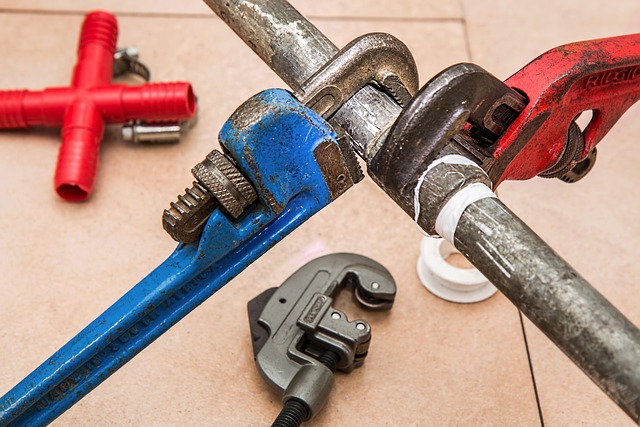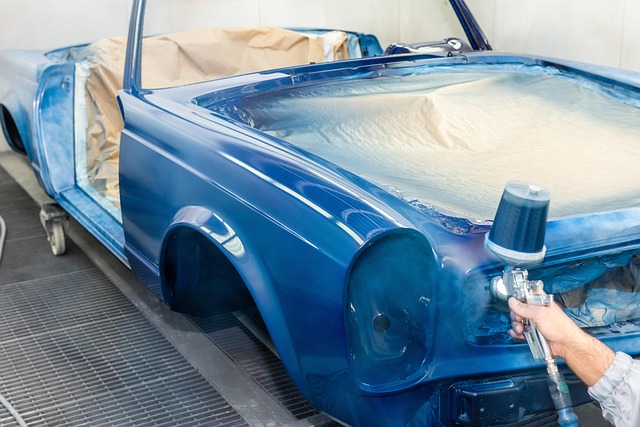Regular oil changes via DIY auto repairs with Select DIY Auto Repairs are crucial for engine health, optimizing performance, saving costs, and reducing environmental impact by recycling used motor oil. Timely maintenance prevents wear & tear, enhances fuel efficiency, and ensures vehicle reliability.
Regular engine oil changes are essential for maintaining your vehicle’s optimal performance and longevity. This article explores the numerous benefits of this simple yet crucial task, from enhancing engine performance to offering cost savings with Select DIY Auto Repairs. We’ll guide you through the significance of understanding engine oil, its role in your car’s operation, and how frequent replacements can significantly impact your wallet and the environment.
- Understanding Engine Oil: Its Role and Importance
- Benefits of Regular Oil Change: Performance Boost
- Cost Savings: DIY vs. Professional Oil Changes
- Environmental Impact: Eco-Friendly Practices
Understanding Engine Oil: Its Role and Importance

Engine oil is a vital component in any vehicle’s operation, serving as a crucial lubricant for its engine. It plays a multifaceted role, reducing friction between moving parts, preventing overheating, and carrying away heat generated during combustion. Regularly selecting the right DIY auto repairs, such as an oil change, ensures that this essential fluid maintains its effectiveness. Over time, engine oil degrades, accumulating contaminants that can lead to increased wear and tear on internal components.
Understanding when and how often to change your car’s oil is key to maintaining optimal performance. Unlike other fluids, engine oil needs frequent attention—typically every 3,000 to 5,000 miles or according to the vehicle manufacturer’s recommendation. This routine maintenance not only extends the life of your engine but also enhances fuel efficiency and overall reliability, preventing more costly repairs, such as a blown head gasket or necessitating tire rotation instructions, which can be tackled as part of your regular service schedule.
Benefits of Regular Oil Change: Performance Boost

Regular oil changes are an essential part of maintaining your vehicle’s optimal performance. By keeping the engine’s internal components well-lubricated and clean, it ensures smooth operation and enhances overall efficiency. When you choose to change your engine oil at recommended intervals, as suggested by your vehicle’s manufacturer, several benefits come into play. One notable advantage is an improvement in engine power and performance. Fresh oil reduces friction between moving parts, allowing for better fuel combustion and smoother, more efficient operations. This can result in a noticeable boost in your car’s acceleration and overall responsiveness, making driving more enjoyable.
For those considering DIY auto repairs, regular oil changes are a great place to start. It’s a simple yet effective task that can prevent more complex issues down the line. Unlike some tasks like fixing a low tire pressure or even a diy brake rotor replacement, changing engine oil doesn’t require specialized tools or a deep technical understanding. Select DIY Auto Repairs offers step-by-step guides and resources to ensure anyone can maintain their vehicle’s health, potentially saving costs on professional services while keeping your car running smoothly.
Cost Savings: DIY vs. Professional Oil Changes

Performing your own oil change can be a cost-effective option for vehicle owners who want to save money on maintenance. While professional services offer convenience, DIY oil changes allow you to pocket the difference in costs. Many drivers opt for do-it-yourself (DIY) auto repairs, including this task, as it provides control over expenses. With the right tools and a bit of knowledge, you can achieve efficient and effective engine oil maintenance without breaking the bank.
Choosing the DIY route not only saves money but also empowers you to take on basic automotive tasks. For instance, if you’re familiar with repairing a loose steering wheel or even fixing a minor coolant leak (like those often overlooked) through DIY methods, you’ll gain a deeper understanding of your vehicle’s upkeep. Similarly, tasks like headlight restoration can be tackled to revive their clarity, enhancing both safety and aesthetics without professional intervention.
Environmental Impact: Eco-Friendly Practices

The environmental impact of engine oil changes is an increasingly important consideration for eco-conscious individuals and DIY auto enthusiasts alike. By opting for regular oil changes, car owners can significantly reduce their vehicle’s carbon footprint. Used motor oil, when disposed of properly, can be recycled into new products like lubricants, fuel additives, and even asphalt for road construction. This reduces the demand for virgin resources and minimizes waste ending up in landfills.
For those who choose to handle these repairs themselves, selecting DIY auto repairs that include oil changes is an excellent way to embrace eco-friendly practices. By following tire rotation instructions, repairing minor damages like a dented fender, or even replacing a door handle, car owners can take control of their vehicle’s maintenance and contribute to a greener environment. These simple tasks not only save costs but also promote sustainability in the automotive industry.
Regular engine oil changes are a simple yet powerful way to keep your vehicle running smoothly and efficiently. By understanding the crucial role of engine oil and its benefits, you can make informed decisions about your car’s maintenance. Whether opting for DIY auto repairs or visiting a professional, staying on top of oil changes will not only enhance your engine’s performance but also provide cost savings and environmental advantages. So, take control of your vehicle’s health and remember the simple yet significant impact of a timely oil change.
